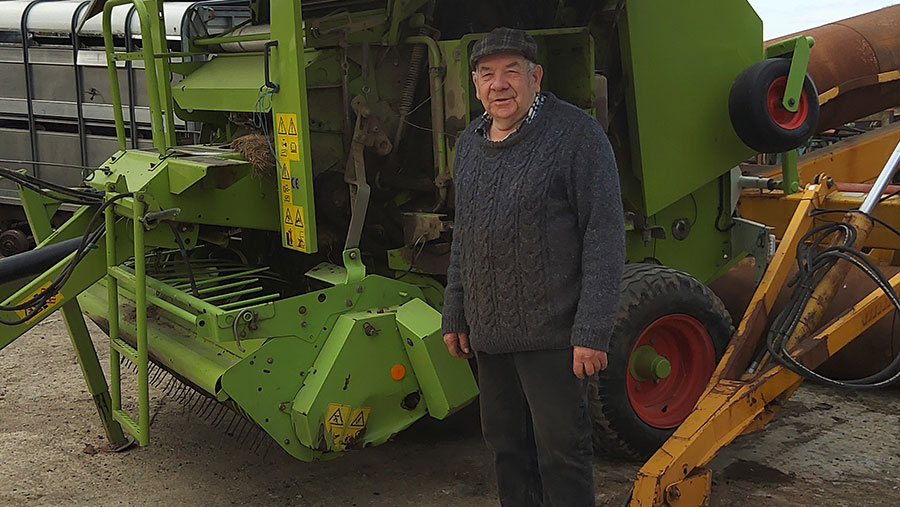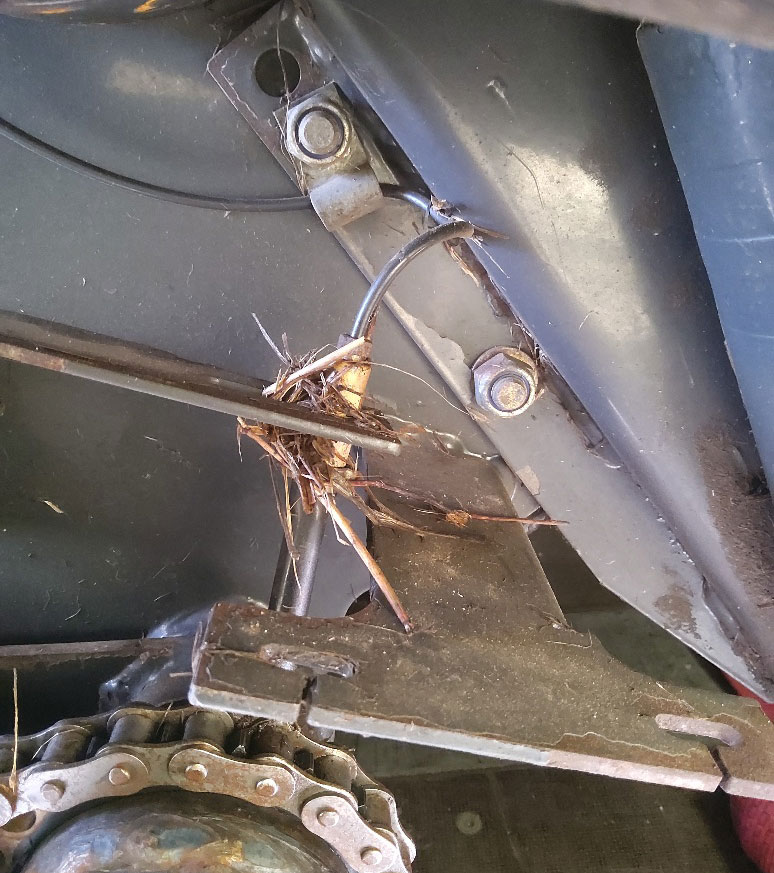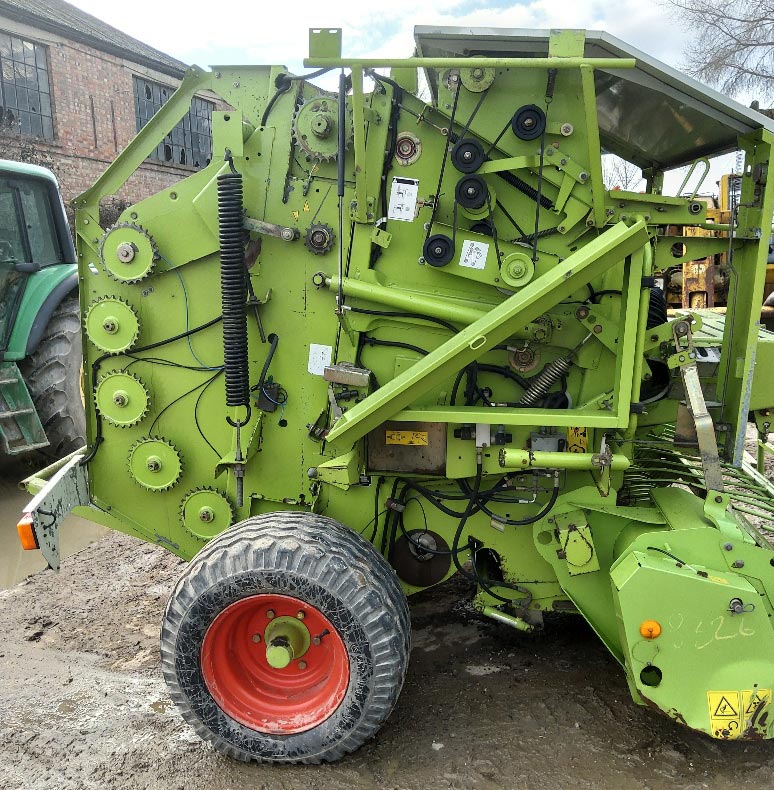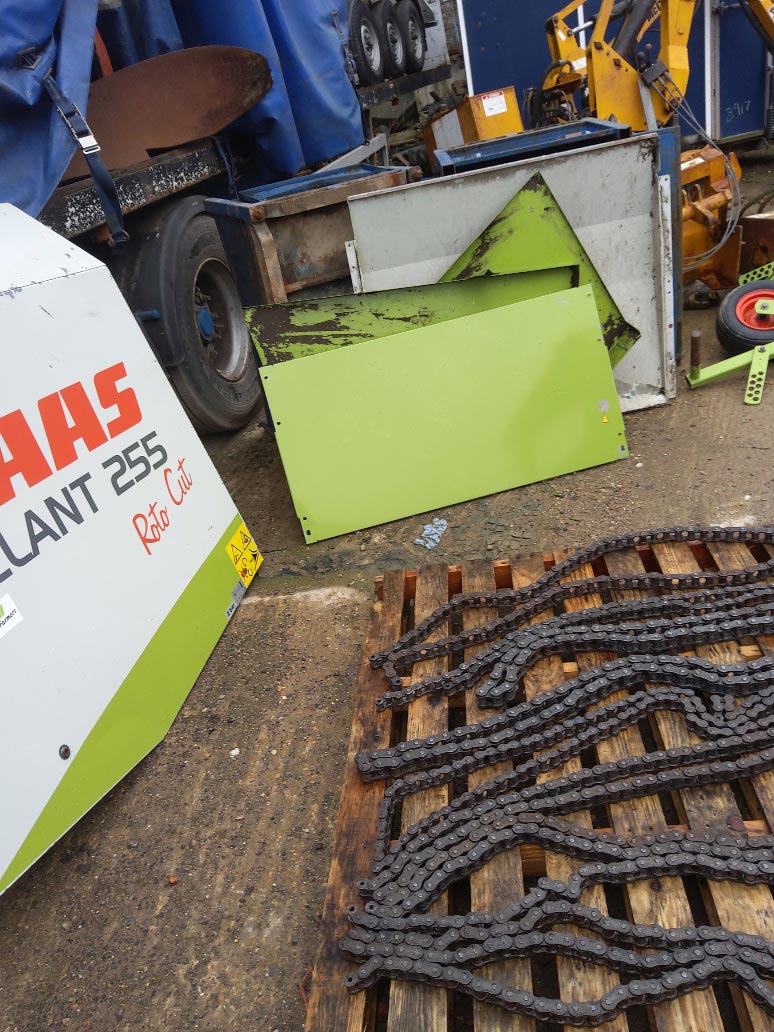Machinery dealer quits exports over ‘lunacy’ of inspections
 © Alec Holt
© Alec Holt An East Sussex machinery dealer has stopped shipping abroad because of the “lunacy” involved in obtaining the plant health certificates required since the UK left the EU.
Alec Holt, who runs Holtractors in Hailsham, said two Claas balers destined for Romania at the start of the year twice failed inspections by the Animal and Plant Health Agency (Apha), despite being stripped down and meticulously cleaned.
The two balers finally passed on the third inspection after three weeks of cleaning.
See also: Barriers to trade with EU will hit farm profits, warns Lords
Three other balers that arrived in Mr Holt’s yard from a dealer in Somerset, and were part of the same export order, had passed their inspection first time, despite evidence of debris and grime still on the machinery.

© Alec Holt
Mr Holt blasted the inconsistency of Apha’s inspections and said the fiasco had cost him about £2,000 in staff wages and £600 in inspection fees, as well as the loss of the sale of a third Claas baler, due to the buyer’s frustration at the delay.
Certificates
Since January, used agricultural, horticultural and forestry machinery and vehicles require a phytosanitary certificate to be exported to the EU and the rest of the world.
It is a measure designed to stop plant diseases spreading from country to country.
“The inspectors admitted they had never done anything like this before,” said Mr Holt, who has been cleaning and selling farm machinery for export for 53 years.
“Apha is used to looking at things like plants and leaves, but not farm machinery.
“I will not be exporting kit again. Having to take the chains off to check for seeds stuck in grease, which will never come off anyway, is just lunacy.”
Mr Holt said the inspectors failed the bailers the first time because the reverse side of the drive chains were not degreased.

© Alec Holt
“I realised we were in it for the long haul, so we removed all panels and guards, and all the drive chains.
We meticulously re-cleaned all drive chains – both sides – and laid them on pallets. I spent five hours cleaning the first baler.
“I opened up the tailgate and cleaned inside again, lifted up the balers by the D-bar and cleaned underneath, then cleaned from the top, sides and back.
æThere are so many nooks and crannies, you are just blasting material to and fro.”

© Alec Holt
The dealer was exasperated when the bailers failed a second time after inspectors used torches to search in the bowels of the machines and “took photos of minute debris using dentist-type mirrors”.
‘Unworkable condition’
Bill Pepper, a machinery auctioneer at Cheffins in Cambridgeshire, echoed the frustration, adding that Apha inspectors were aware of the difficulties the new rules could cause dealers.
“When we had our initial meeting with the inspector, she showed us the guidelines that had been issued by head office.
“Reading through them, it starts off saying the machinery should be clean of soil contaminants, vegetative material and then it says ‘as new condition’.
“She said that particular condition is unworkable when you’ve got machinery here which can be 30 years old, and it has had a hard life.
“To get that into ‘as new’ condition is virtually impossible,” he told the Farmers Weekly podcast.
Defra said it did not comment on individual cases, simply explaining that “exports of agricultural machinery to the EU require an export plant health phytosanitary certificate – this is an EU import requirement”.
